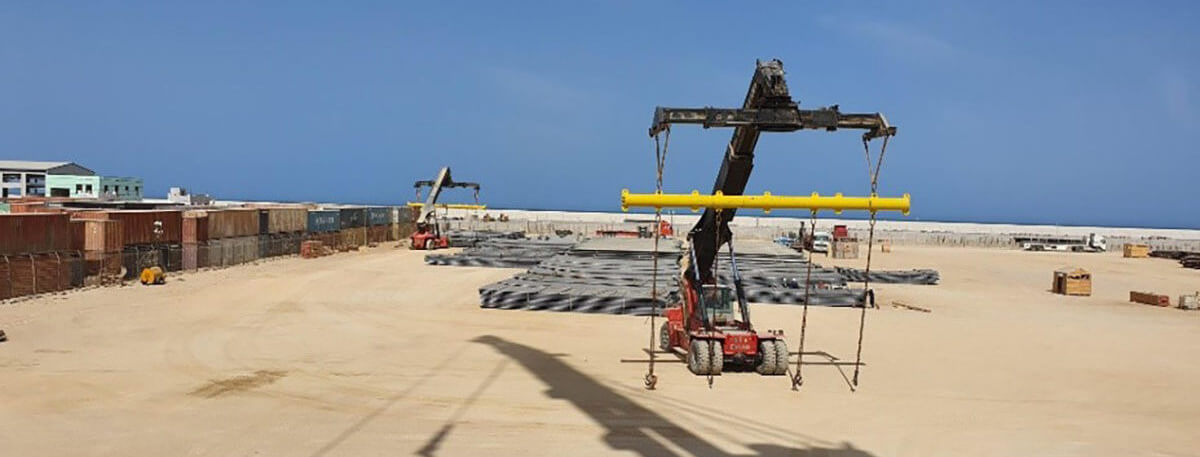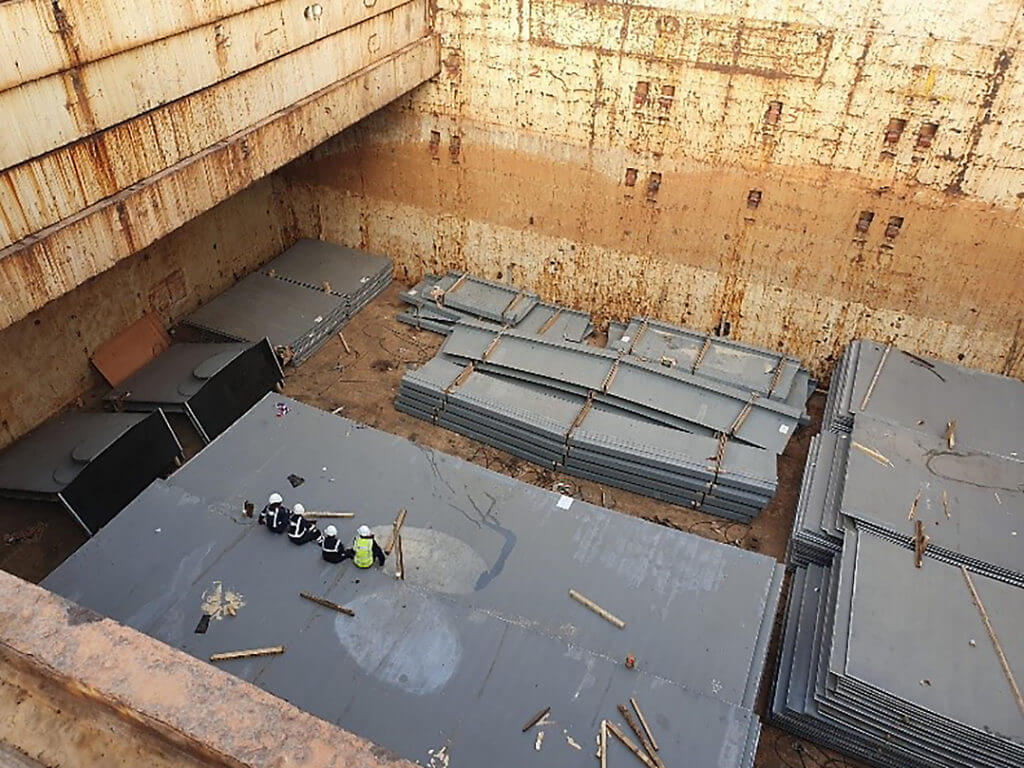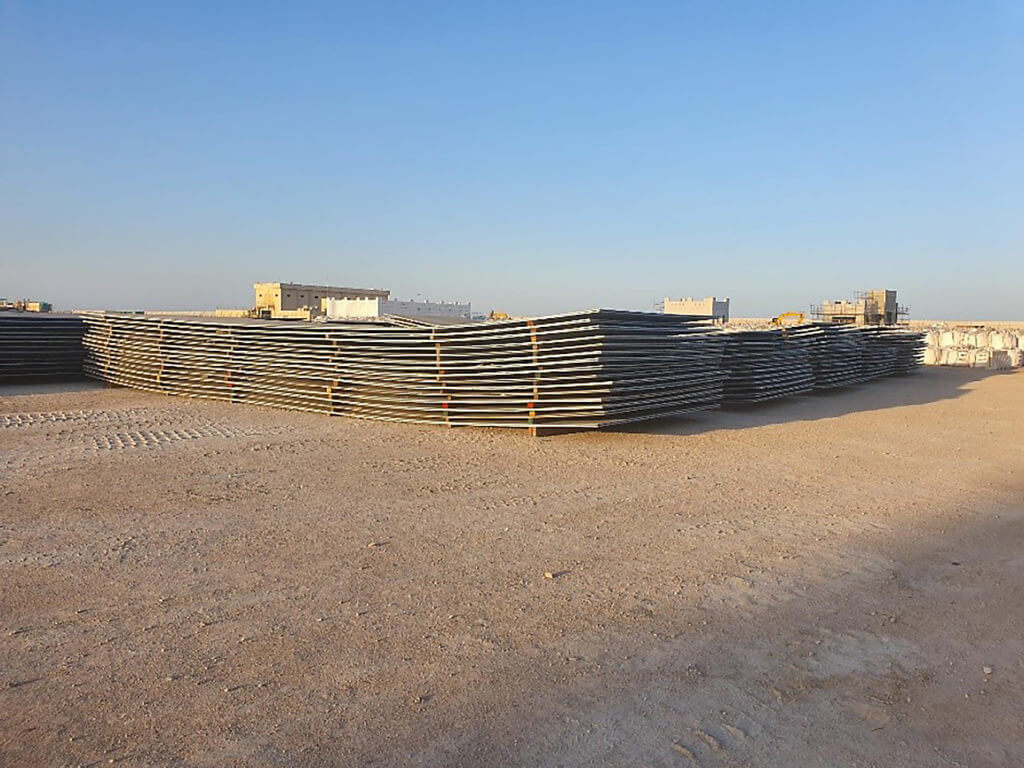
Fuelling Oman’s onshore oil
Al Duqm, a port town located in central-eastern Oman, is set to become home to an oil refinery for diesel, jet fuel, naphtha and LPG products. Once completed, the refinery will have the capacity to process 23,000 barrels of crude oil per day and will make a significant contribution to Oman’s prosperity. To kick off the refinery’s construction, the Trans Global Projects Group was commissioned to deliver the project’s first load of cargo.
The challenge: Uncharted waters
Our responsibility involved three key stages: first, unloading 35,000 mt of steel plates – the equivalent weight of more than 70 fully laden Boeing 747s at take off – at the port of Duqm. Second, taking the units to the port storage area. Third, transporting the units to a temporary storage and fabrication facility until the refinery’s construction began.
In addition to coordinating a heavy lift programme, obtaining oversized transport permits and preparing the units for customs inspection, our team was faced with one other important consideration: this would be the first breakbulk shipment ever to arrive in the port of Duqm. As a result, extra preparation would be needed to ensure a smooth and safe vessel discharge.
At TGP, we’re not afraid to navigate uncharted waters, so our team was ready to go full steam ahead.
Our solution: Ruling out delays by ruling out surprises
Wasting no time, we worked as a tightknit team with the port’s stevedore crew to certify everything was ready for the steel plates’ discharge. We confirmed the port’s team was equipped with sufficient lifting gear and hooks for safe handling. We assigned clear roles and responsibilities and were on the ground to ensure the port handling was executed exactly as planned.
Preparation for the transport from vessel to storage facility involved applying for customs duty exemption as well as for Royal Oman Police (ROP) transport permits for overland transport of out of gauge cargo.
Looking to reduce downtime, our team also organised an airtight plan for loading. All trailers were loaded between 6:00-11:00pm to ensure the cargo was ready to roll during the ROP escort time between 2:00-5:00 am.
The results: Optimal efficiency
Our careful planning, continuous overview and ability to mobilise the right tools and the right team resulted in optimisation across the whole operation, saving time, maximising safety and minimising risk. We delivered the large quantity of steel plates within the timeframe requested and were able to provide our client with a customised storage facility that enabled them to perform remedial hot works (painting, cutting, welding) to the cargo while the construction site was still unavailable.


